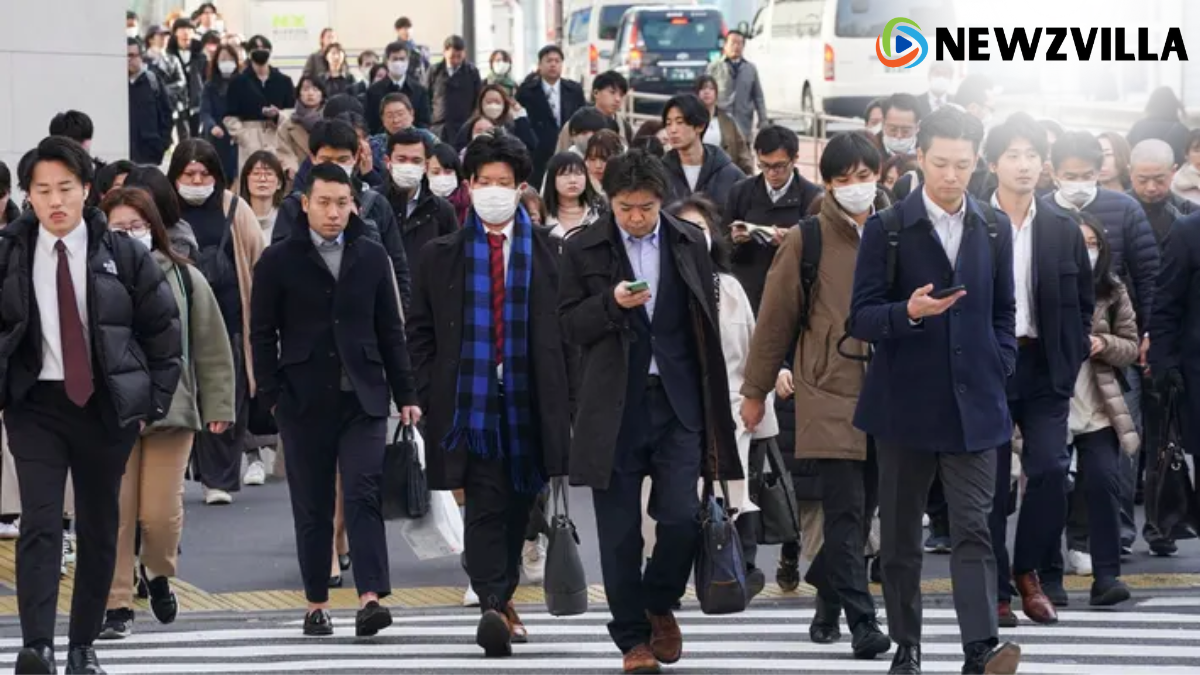Japan’s economy contracted for the second consecutive quarter at the end of last year, primarily due to a slowdown in consumer and business spending. This unexpected downturn has pushed the country into a recession, contrary to earlier expectations of modest growth.
The weak economy can be attributed to various factors, including inflation at four-decade highs, a weak yen, and rising food prices, which have affected both businesses and consumers.
The end of the year also marked an anticipated moment: Japan’s economy, which is now slightly smaller than Germany’s, slipped one notch to become the world’s fourth-largest economy. On an annualized basis, the gross domestic product (GDP) declined by 0. 4 percent from October through December, following a revised 3. 3 percent decline in the previous three-month period. Economists had been predicting fourth-quarter growth of around 1 percent.
The outlook for Japan’s economy is clouded by conflicting figures. On one hand, corporate profits are at record highs, the stock market is surging, and unemployment rates are low. However, two key drivers for the economy, consumer spending and business investment, are lagging behind. Shinichiro Kobayashi, principal economist at Mitsubishi UFJ Research and Consulting, has described the economy as “polarized” due to higher prices. While corporate profits soar, the prices of goods also increase, but wages have not kept up with this trend. As a result, consumers are hesitant to spend their money.

A significant question arises regarding whether Japanese workers will see a meaningful increase in wages this year. According to Mr. Kobayashi, the corporate sector holds the key to this matter. Although the economy is technically in recession due to two consecutive quarters of negative growth, these figures are preliminary, and a substantial upward revision could potentially negate the recession label. The soft economic data also adds complexity to the upcoming decision of the Bank of Japan regarding whether to proceed with the country’s first interest rate hike since 2007.
Japan’s central bank has persistently maintained policies aimed at keeping interest rates low and stimulating spending, which is a result of its ongoing struggle against deflation. Some economists had speculated that the central bank might finally change its course as early as April if the economy showed signs of improvement.
Marcel Thieliant, head of Asia Pacific at Capital Economics, expressed doubt in a research note that the disappointing fourth-quarter figures would deter the Bank of Japan from ending negative interest rates in April, despite the expectation of sluggish economic growth throughout the year.
Click here to watch the detailed video
One sticky issue for the central bank is the persistently weak Japanese yen. The decreased purchasing power of the currency leads to higher costs for imported goods in Japan, thereby adding to the inflationary pressure experienced by consumers. However, it does tend to benefit many leading Japanese firms that sell goods abroad, as the weaker yen improves their bottom line when they bring their foreign earnings back to the country.
Despite the European Central Bank and the Federal Reserve raising rates in the last couple of years, the Bank of Japan has remained steadfast in its policies, which have contributed to the weakening of the yen. As a result, global investors find it attractive to borrow yen at low interest rates in Japan and invest those funds in dollars or euros at much higher interest rates in the West.

Saisuke Sakai, a senior economist at Mizuho Research & Technologies, expressed concerns about the possibility of the domestic economy contracting in the first three months of this year. This contraction is expected due to the disruptions caused by the major earthquake in January, which heavily impacted the manufacturing-rich western region of Japan. Such a contraction could further dampen consumer sentiment. Mr. Sakai highlighted the potential impact of three consecutive quarters of negative growth on public perception of the Japanese economy. He mentioned that if this were to occur, people might question the overall health of the economy, raising doubts about its stability.
Japan, with the release of its year-end gross domestic product numbers, has also relinquished its position as the third-largest economy, falling behind the United States and China. Since being surpassed by China in 2010, Japan had held that spot. In terms of U. S. dollars, which are the principal currency used in global trade and finance, Germany now holds that distinction.

In fact, the German economy is also experiencing difficulties. The decision to cease purchasing inexpensive Russian natural gas and oil, in response to the Russian invasion of Ukraine, has resulted in a significant increase in energy costs. Although the country has transitioned to suppliers in the Middle East, the United States, and other regions, these changes have not fully mitigated the impact.
In the coming years, Japan may lose its position as the fourth-largest economy due to its shrinking population. It will struggle to keep up with the growth of India, which is currently the world’s most populous country.







Leave feedback about this